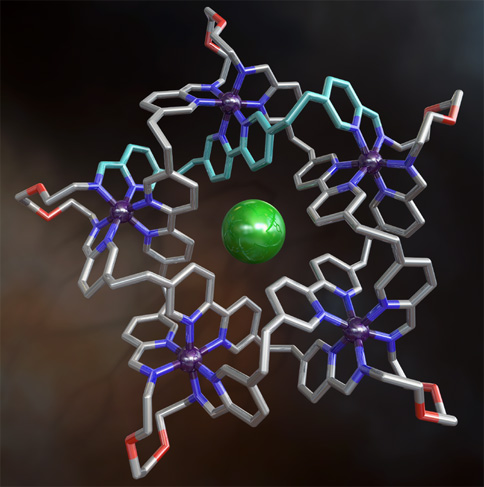
Posted on 01/12/2017 2:04:59 PM PST by BenLurkin
Now, in the journal Science, a team of chemists says it has made a huge advance — manipulating molecules to create the tightest knot ever.
"Historically, knotting and weaving have led to all kinds of breakthrough technologies," says David Leigh at the University of Manchester in the U.K., who notes that knots led to prehistoric innovations such as fishing nets and clothes. "Knots should be just as important at the molecular level, but we can't exploit that until we learn how to make them, and that's really what we're beginning to do."
The first molecular knot was created by chemist Jean-Pierre Sauvage, one of three scientists who won last year's Nobel Prize in chemistry for work in creating parts for future molecular machines.
His knot had loops that made it look a bit like a three-leaf clover. This "trefoil knot" is the simplest kind of knot possible, Leigh says, "and then for the next 25 years, chemists weren't able to make any more-complicated knots than that."
That's surprising, he says, considering that mathematicians have come up with billions of possible knots.
But in just the past few years, scientists including Leigh have managed to produce a few more complex knots. His team's latest knot is the most intricate yet.
It looks a lot like a Celtic knot and is designed to effectively tie itself in a test tube. Molecular strands wrap around metal ions that act like knitting needles and set up strand crossings in just the right spots.
"You can't tie the knots by grabbing the ends and mechanically tying them like you would a shoelace in our everyday world," Leigh says. "Instead, you have to use chemistry."
Three molecular strands get braided together in this knot, he adds, "and being able to braid, like you braid a girl's hair in elementary school, allows you to make much, much more complicated knots and ultimately opens the door for weaving as well, which will be very exciting."
That's because molecular weaving could produce materials with interesting new properties.
"It's fantastic," says Edward Fenlon, a chemist at Pennsylvania's Franklin & Marshall College who has a special interest in knots but was not part of this research team. "It's really impressive that they've been able to go beyond some of the more simple knots with just three crossings."
This new knot has eight crossings, he says, and what's more, it's the tightest knot ever, which he says is defined by just "the length of your rope, and then how complex the knot is, how many crossings you have."
In this case, the "rope" is very short — just 192 atoms long, or 500 times smaller than a red blood cell, Leigh says.
"Knots are really fascinating objects or geometric shapes. They have always been around; you observe them in art, in nature. As a Boy Scout you learn how to tie knots," says Rigoberto Advincula, a chemist at Cleveland's Case Western Reserve University, who notes that knots also are found in DNA and proteins. "It's one of the fascinating things to stretch chemistry in terms of your ability to make synthetic objects."
“You can’t tie the knots by grabbing the ends and mechanically tying them like you would a shoelace in our everyday world,”
Not yet, perhaps.
‘This thread is useless without pitchers’
Does this have a practical application ?
Be careful not to create a black hole.
Sounds like a job for Big Al. He’s great at knots.
Bandersnatch DNA!

Oooo, pretty!
It has many practical applications, in particular electronics.
While often a knot is the weakest part of the rope (or fishing line), I can see the idea of weaving material together to make it stronger. My first thought would be body armor maybe?
Disclaimer: Opinions posted on Free Republic are those of the individual posters and do not necessarily represent the opinion of Free Republic or its management. All materials posted herein are protected by copyright law and the exemption for fair use of copyrighted works.